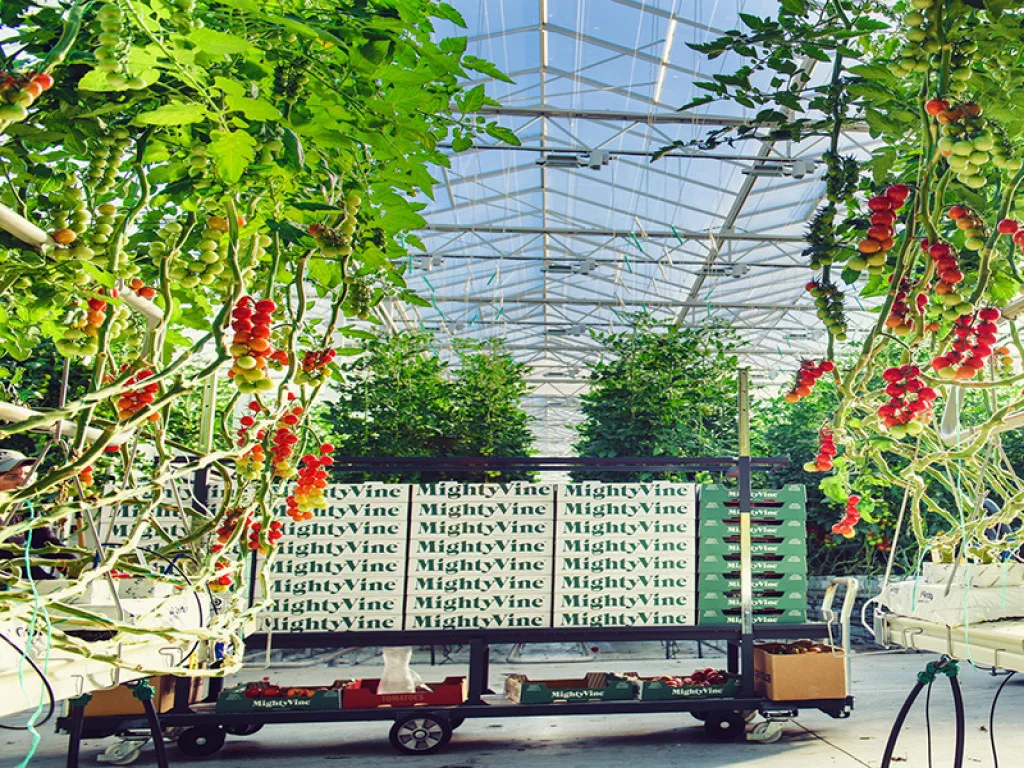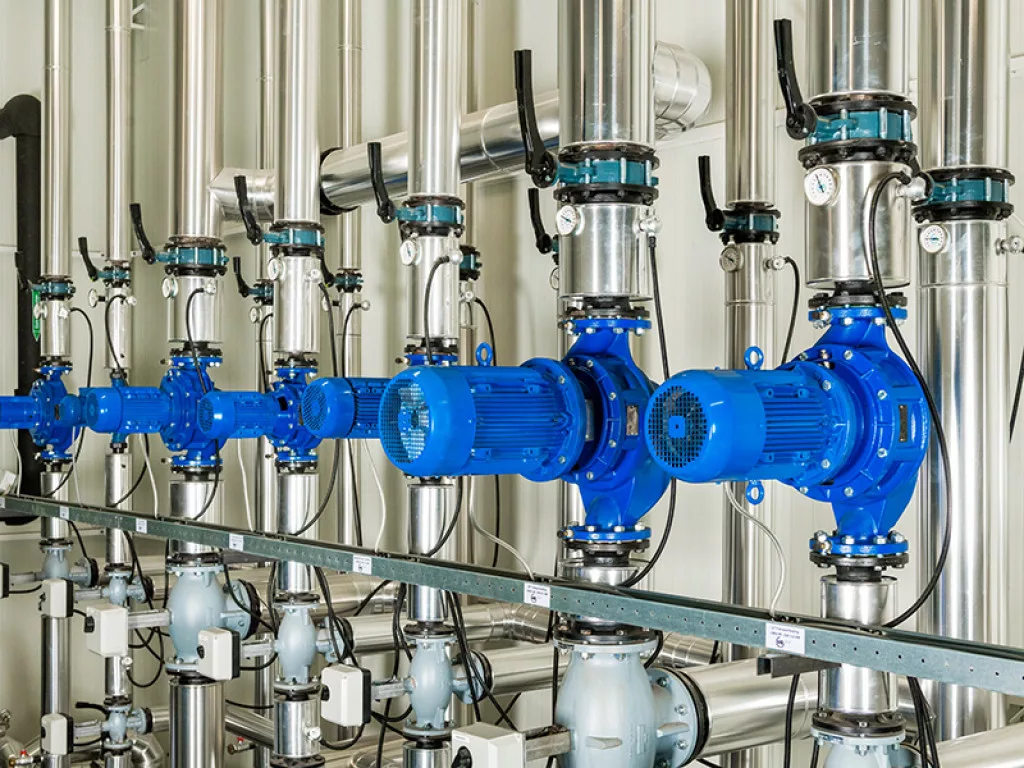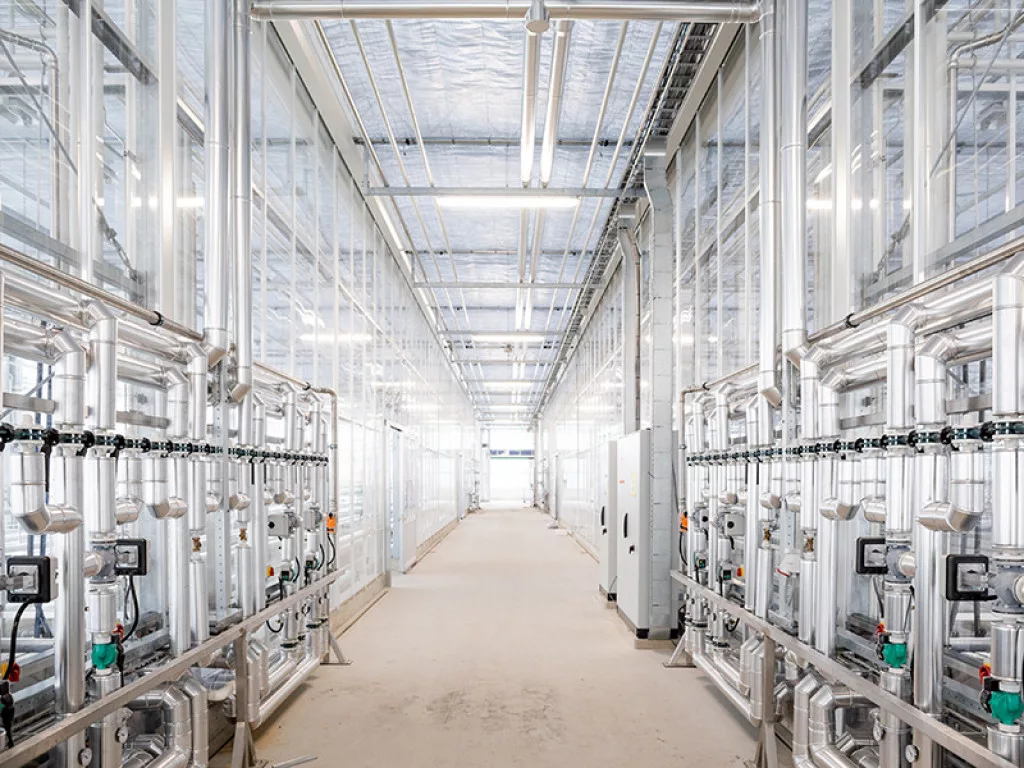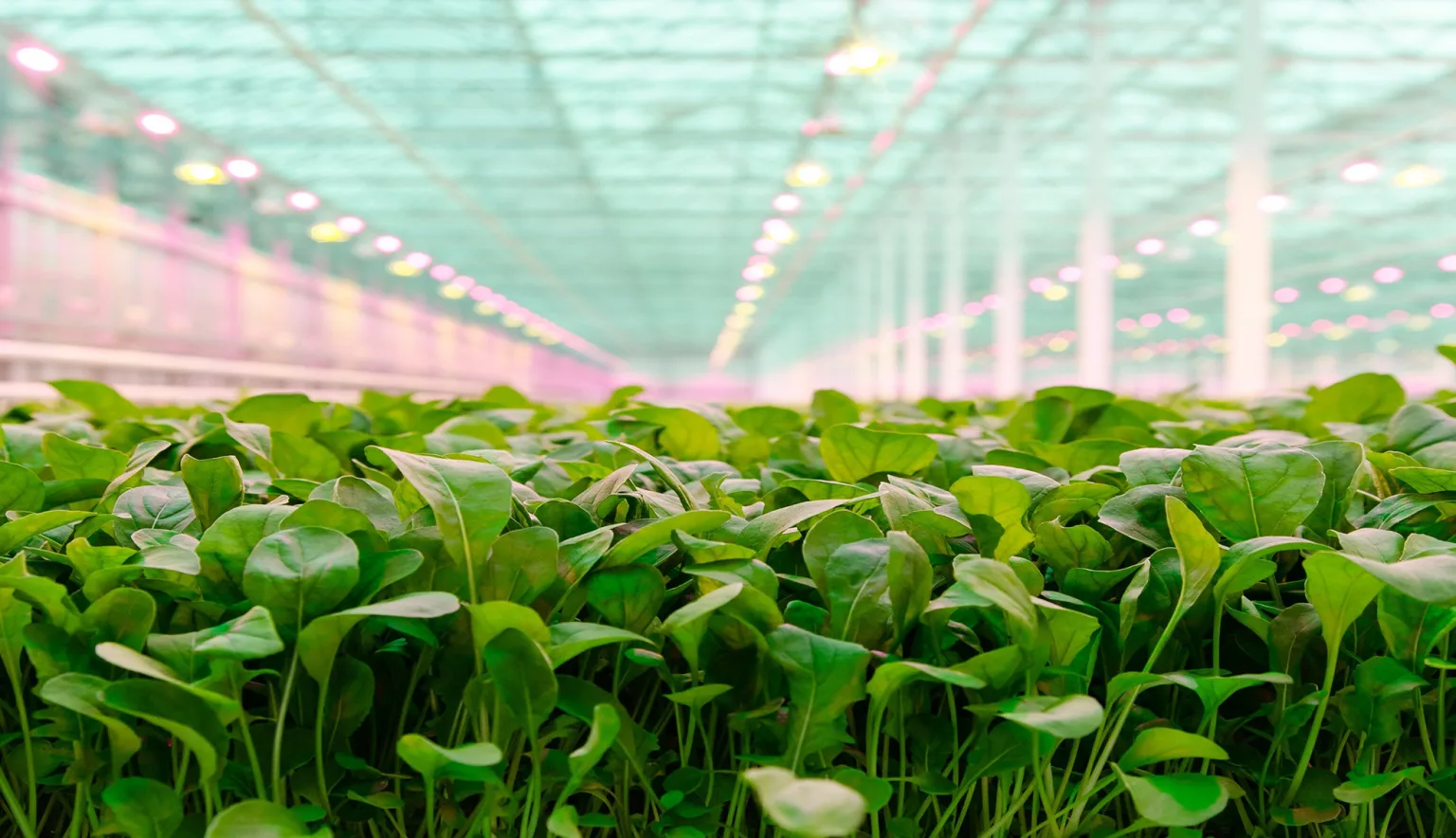Controlled-environment agriculture is being recognised as the most efficient method of choice for farming and horticulture. Originating from the Netherlands, we take a look at VB, and speak to CEO Edward Verbakel about greenhouse advantages and recent developments in Europe and the US.
CULTIVATING THE FARM OF THE FUTURE
Our history is filled with examples of innovation across a thousand practices, but few have been as important as those great steps made in the pursuit of food.
Turn the clock back to the Neolithic Revolution in around 13,000-10,000 BCE, a time when animal husbandry led humanity to be masters of the herd rather than the hunt, a smarter, more efficient, and less dangerous practice. Thereafter in 9,000 BCE, our ancestors dwelling in the Fertile Crescent (east of the Mediterranean Sea spanning multiple Middle Eastern countries) turned their minds to the plough, lapping over the soil in waves to keep earth fresh and fertile to host seeds and grow crops. Agriculture had begun in full bloom, setting in stone the food-centric path of early, settled civilisation.
From such dawn-era knowledge, agriculture has adapted across the world. One only has to look at the iconic terraced hill farms of ancient Wari (and later Incan) culture – techniques that are still used around the world due to their efficiency and success.
Today, such tiered (or vertical) farming methods are not only applicable but represent the future of smart farming, as the most economical use of energy and resources while limiting environmental impacts, in exchange for the highest yield of consumable produce. Smarter farming methods are the key to our future, and this truth is being realised across the globe.
“The world’s population is growing; there is more demand for safe, healthy food all year round, and this is coupled with the necessity of combatting climate change, and the consequential demand for food produce that uses less energy and water, as well as a reduced transport footprint,” introduces Edward Verbakel, CEO of VB.
The son of a company founder (Aad Verbakel), Verbakel is a second-generation family member in an executive position within VB, and has led the company for almost 20 years, managing projects that have been built for clients around the world.
“Modern greenhouses are the way forward; they use 20 percent less water than field-grown crops, use up less space for more produce through tiered farming, and are now considered as assets by investors and capital funds due to their value in the agricultural sector.”
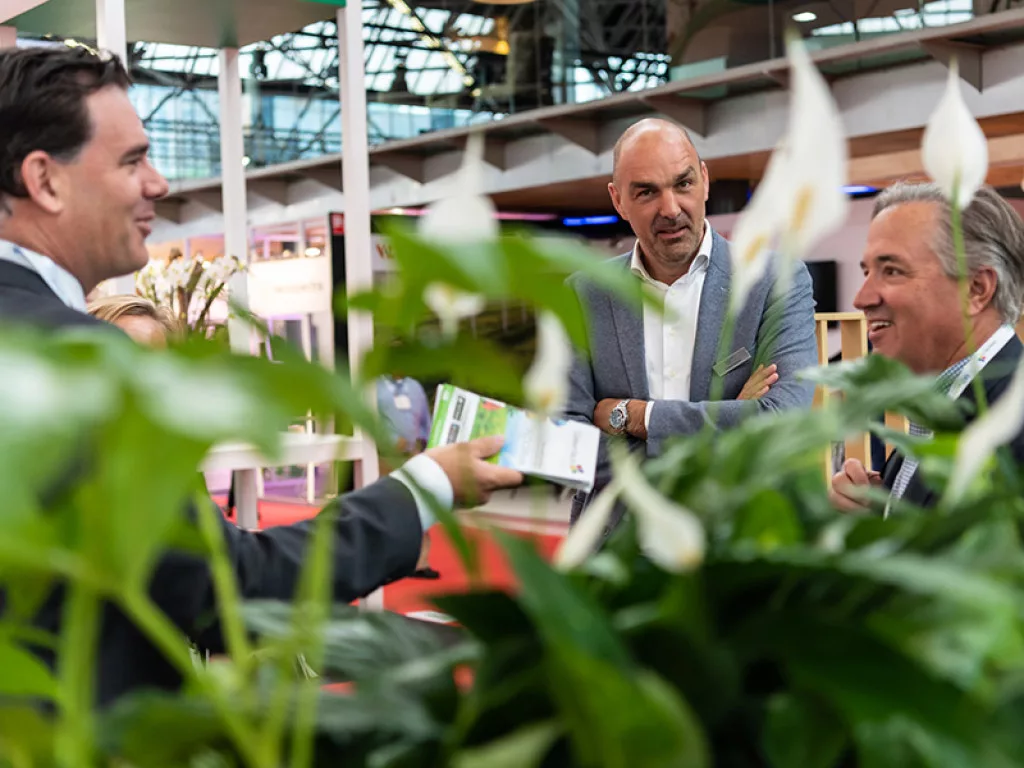
OVER 50 YEARS OF INNOVATION
VB operates three primary divisions: horticulture, climate and energy. Within the rapidly changing horticulture sector, VB is an industry leader in providing greenhouse solutions that make use of the latest and best technology and design, and can weather even extreme conditions.
Initially founded as a heating supplier to the horticulture industry in 1966, J & A Verbakel Verwarming was started in the Netherlands by two brothers, Joop and Aad Verbakel, with company activities later branching abroad to places such as Belgium, Germany, France, and even in the US.
As the company diversified into greenhouse building projects in 1983, the name changed; what had been Verbakel – Bomkas following a business acquisition of Bomkas Greenhouses in the Netherlands, thereafter became VB, and today the company stands as a specialist in constructing sustainable plants and projects, the centre of which are its greenhouses.
“We specialise in the design and build of such greenhouse projects, and we are also active in the energy solutions space, geothermal heating plants, and in other areas such as football stadiums,” Verbakel tells us. “There is currently an energy crisis in which high-tech horticulture requires substantial volumes of energy for heating, cooling and lighting.
“Industries need to become more sustainable; geothermal heat can replace some of the fossil fuels, yet the scale is needed to benefit from these sources. VB is well aware of the domestic Dutch requirements to realise the geothermal sources and has ambitions to bring this knowledge into other markets. However, this will require local partners that are well informed about the local rules and regulations related to these heat mining activities.”
VB’s greenhouse projects are built from the ground up and delivered with professionalism and the promise of bountiful yield, answering the demand in the agriculture industry for smarter and better methods of farming.
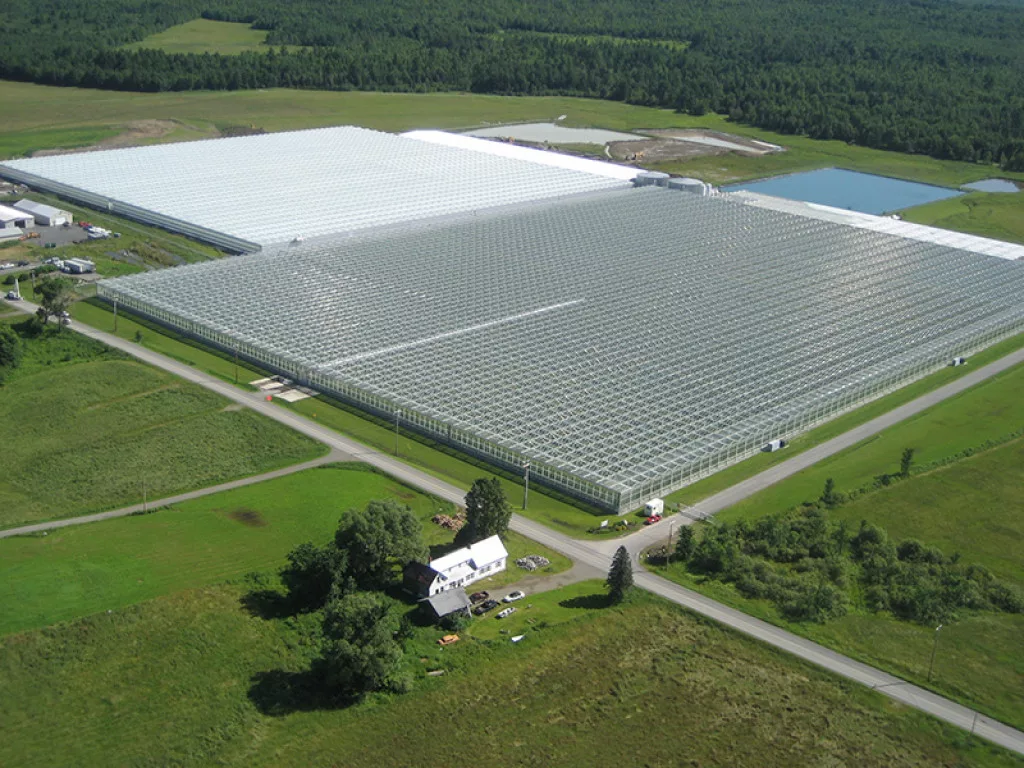
SMARTER FARMING
The reason why greenhouses are becoming a core focus of the agricultural and horticultural industries is clear for those who invest in such sectors. For Verbakel, smarter agricultural practices and the sustainable use of energy is key to improving the yield and longevity of food production, and at a structural level, greenhouses are fundamental to this success.
“The availability of food within a large population combined with climate change and the ambition to reduce miles makes it a very interesting topic, especially when combined with the significant attention being placed on controlled-environment agriculture (CEA),” explains Verbakel.
“A field is vulnerable; crops are at the mercy of the weather with the potential to be impacted by storms or exposed to drought conditions, for example. In terms of water usage and pesticides, fields use a lot more water than CEA, while also having to make use of more pesticides due to crop exposure to the open air.”
The smarter and more sustainable methods of greenhouse farming are shown by the circular use of resources, exemplified by the resource cost to produce the humble tomato.
According to Verbakel, a field-grown tomato requires up to 20 times more fresh water than a greenhouse-grown tomato, and the water that such greenhouse-grown fruit and vegetables do not consume is recaptured, cleaned and ready to be used again, while in the field, excess water is soaked into the earth along with pesticides and fertiliser that impacts the soil levels. The retrieval and cleaning of this water from an open field requires far more energy, effort and time than that reused from a greenhouse.
“Not only is tiered farming the origin for less water, less space and more produce, but it is the expected future form of farming,” Verbakel adds.
“Nowadays, we are able to use less water and less space due to high-efficiency methods that use less water and less labour. The shortages in daylight and climate are being compensated by advanced technological solutions in a controlled environment.”
Then there are the disadvantages of such labour and field-grown produce shelf life in traditional agriculture. The fact that produce has to bridge distances before it reaches an area where it is being consumed is an issue brought to the forefront of traditional field agriculture.
“Areas with open agricultural fields are not particularly the areas where most of the population lives, and so there exist costs, not only in travel and to the environment, but also shelf life,” Verbakel details. “Meanwhile, our clients are using our technology to grow and bring better quality foods to a more demanding consumer 365 days a year, keeping produce fresher, increasing shelf life, and reducing waste.”
Traditional field farming entails more rigorous and less efficient labour, making employment a less attractive prospect. The difference between working low to the ground, exposed to the elements, compared to the easy access to efficiently grown (sometimes tiered) produce leads to longer-term employment and happier personnel.
“On top of this, greenhouses are seeing new trends of automation and robotisation, and are more receptive to such advancements,” Verbakel adds. “CEA allows for a greater level of control and monitoring and is built for the automation of processes, as well as making use of technology that maximises yield potential and prediction at all times of year, such as LED lights that spread much lower heat so as not to impact the temperature of greenhouses, while increasing light levels to promote growth.”
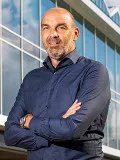
“Our clients are using our technology to grow and bring better quality foods available to a more demanding consumer 365 days a year, keeping produce fresher, increasing shelf life, and reducing waste”
Edward Verbakel, CEO, VB
BUSINESS ACROSS THE POND
Although VB’s roots sprouted in the Netherlands and Europe, the company is branching further afield. Across the pond, the US is a hub of activity for the company and its expansion plans, with VB having successfully undertaken multiple projects for US-based clients and many more promising developments in the pipeline.
“The North American market is a focus for VB. We have a rich history in the US, having been active there since 1971,” Verbakel tells us proudly. “VB has references in over 25 states and works for companies who are each the best in their class.”
In recent years, VB has completed projects for Little Leaf Farms, Mighty Vine Tomatoes, Bushel Boy Farms, Backyard Farms, and Village Farms, as well as with its Atrium Agri partner for Green Empire Farms, Pure Flavor, Maroa Farms, and App Harvest in the CEA space.
“Little Leaf Farms has been our respected client since they started their first building in Devens, Massachusetts, in 2015. We have built five consecutive times for them,” Verbakel continues. “The latest greenhouse expansion in McAdoo, Pennsylvania, will integrate Little Leaf Farms’ best-in-class technology, including energy efficiencies across heating, cooling, lighting, advanced data analytics and hands-free automated growing systems.
“Little Leaf Farms employs hydroponic production for its lettuce which is grown under glass and uses captured rainwater, natural sunlight, up to 90 percent less water than field-grown greens, and no harmful pesticides.”
VB has decades of history in North America, going back to Verbakel’s father who undertook his first project on Long Island (New York State), and from there grew the business and helped lead it to what it has become today.
“The North American market is the most important continent that we are focused on at the moment. We are fortunate to experience a good exchange rate and a relatively stable economic climate between Western Europe and North America, not only in the US, but also in Mexico and Canada where we remain active,” Verbakel says.
“When VB began in the US, we delivered solutions to produce domestic plants and flowers, but later in the 2000s we made a shift towards the vegetable market. The US is behind when you look at the greenhouse surface per capita, and this is demonstrated by the country’s food imports and substantial field farming industry, so there remains a great deal of potential in the market for greenhouse developments.”
“Modern greenhouses are the way forward… and are now considered as assets by investors and capital funds due to their value in the agricultural sector”
Edward Verbakel, CEO, VB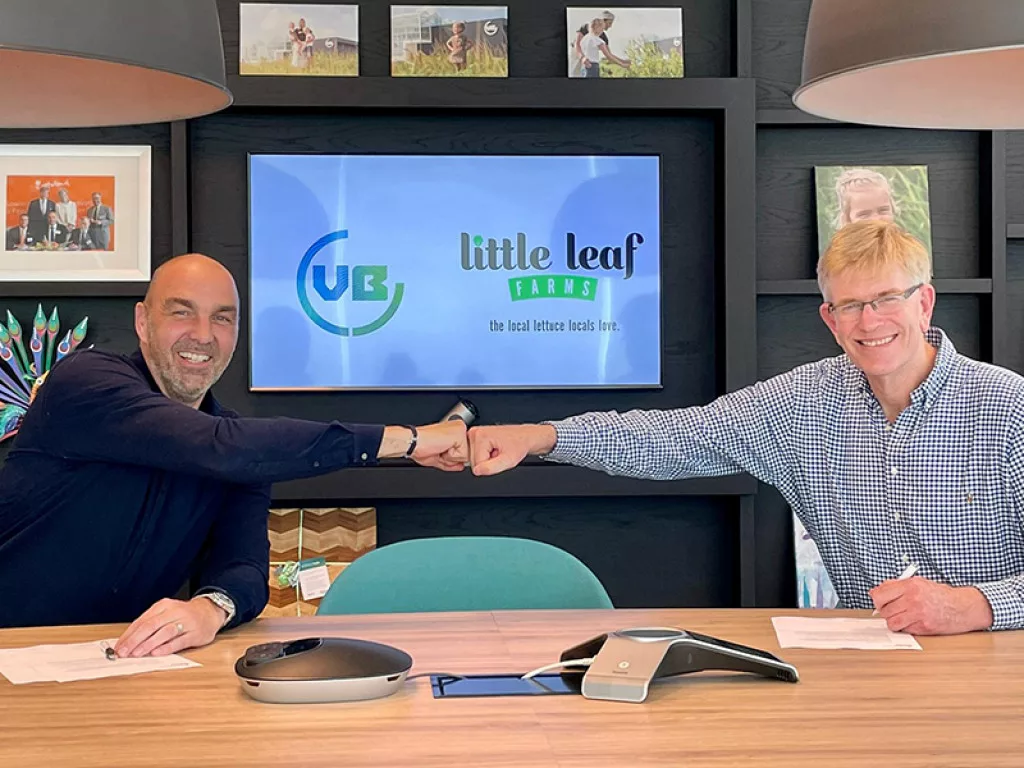
SECURITY AND SUSTAINABILITY
The US will remain VB’s focal market, given the size and scale of farming across the country and the potential of the sector.
Moving forward, VB is aware that business security is an important aspect of success, which in turn allows the company to continue advancing the agriculture and horticulture industries, helping them develop and become more efficient, eco-friendly, and economical.
“We are aware that we are doing well, but we can still do better,” Verbakel reflects. “Another thing to remember is both profitability and the robustness of the company, as to become more sustainable it is important to be economically justified; you should not overspend on trying to become a better supplier and have a lower profile of existence or a lower outlook for a healthy future.
“Looking to the years ahead, together with our clients and partners, we will create a sustainable future by using fewer natural resources while producing fresh healthy vegetables and beautiful flowering plants. Our short-term goal is to maintain key customer relations and increase customer satisfaction.
“Under the Atrium Agri umbrella, we have the capacity and leverage to take on very large-scale greenhouse projects and bring them to successful completion.”
